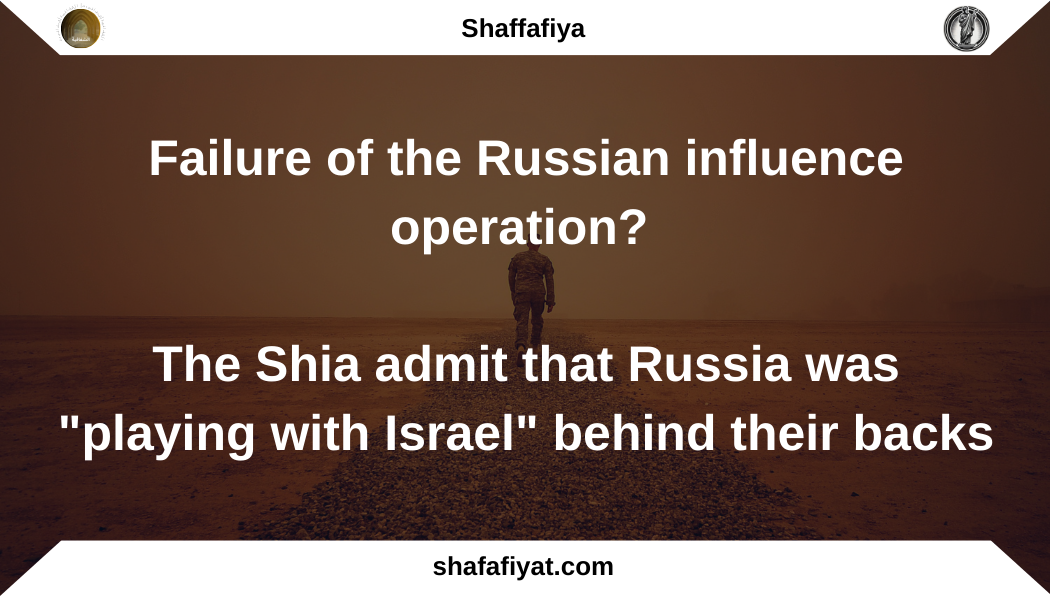* * *

* * *
Since the collapse of the Assad regime in Syria, there has been a sharp decline in the public activity of the Russian ambassador to Iraq, Elbrus Kutrashev. An analysis of pro-Iranian Shia media in Iraq, which had previously actively promoted Russia, indicates disappointment with Russia, which may explain its decision to temporarily lie low.
The Shia television channel Al-Ahad, affiliated with the Asaib Ahl al-Haq group and its leader Qais al-Khazali, published a report on 8 January accusing Russia of “playing in favour of Israel” in Syria and “abandoning the Iranian strategy” regarding the fight against jihadists from HTS, who took control in Syria. This report refers to a conversation broadcast by the Iranian news agency Tabnak between Iranian commanders and General Staff officials, revealing that Assad’s army was corrupt and not only avoided combat but also, under pressure from Russia and others, sabotaged Iranian forces’ attempts to undertake military action in Syria.
The report cited by Al-Ahad also states that the Syrian army did not provide any weaponry to Iranian forces stationed in Aleppo, which led to the rapid capture of the city by HTS and the killing of the Iranian forces’ commander, General Kiomars Purhashemi.
The Al-Ahad report also indicates that Russia supported Israel’s actions following Iran’s strike on the country in April 2024. Citing Tabnak, Al-Ahad states that “Russia turned off Russian radars during Israel’s attack on Iranian commanders in Syria, which is clear evidence of Russia’s cooperation with Israel.” The report further quotes a commander of Iran’s Sepah, who claims that “Russia abandoned Iran’s land strategy aimed at defeating terrorist groups, promising to carry out airstrikes. However, it turned out that the airstrikes targeted residential homes and desert areas rather than the military targets of the Tahrir al-Sham organisation.”
Reports that Assad regime officials, acting on Russian orders, provided Israel with data on the deployment of Iranian forces in Syria to facilitate their bombing emerged as early as mid-December.
These reports were based on leaked documents detailing contacts between the Syrian Ministry of Defence and an Israeli intelligence officer overseeing the operation, known by the codename “Mousa.” This revelation was not particularly surprising, as it had long been known that Russia forbade Assad from activating Syria’s air defence systems during Israeli airstrikes on Iranian positions in Syria. The only real surprise was that, despite this, Iran supplied Russia with drones, which it later used in Ukraine, while media outlets like Al-Ahad continued to promote Kutrashev’s absurd narratives about Europe, the world wars, and the war in Ukraine.
The Al-Ahad report may signal the beginning of a shift in the narrative of pro-Iranian Shia media regarding the situation in Syria. Until now, they had promoted a conspiracy theory attributing Assad’s downfall to a coalition of Israel, jihadists, Turkey, and the West. To some extent, this narrative aligned with Russia’s efforts to frame Assad’s overthrow within the context of its so-called “lone struggle” against “Western aggression” on multiple fronts, including Ukraine and the Middle East. The recent report exposes the falsehood of this narrative. The open question remains what strategy Russia will now adopt to rebuild its influence among Iraqi Shia groups and whether, by playing on anti-Western sentiments, it will once again succeed in deceiving these circles.
* * *
Compiled by: Witold Repetowicz | shafafiyat.com
* * *

